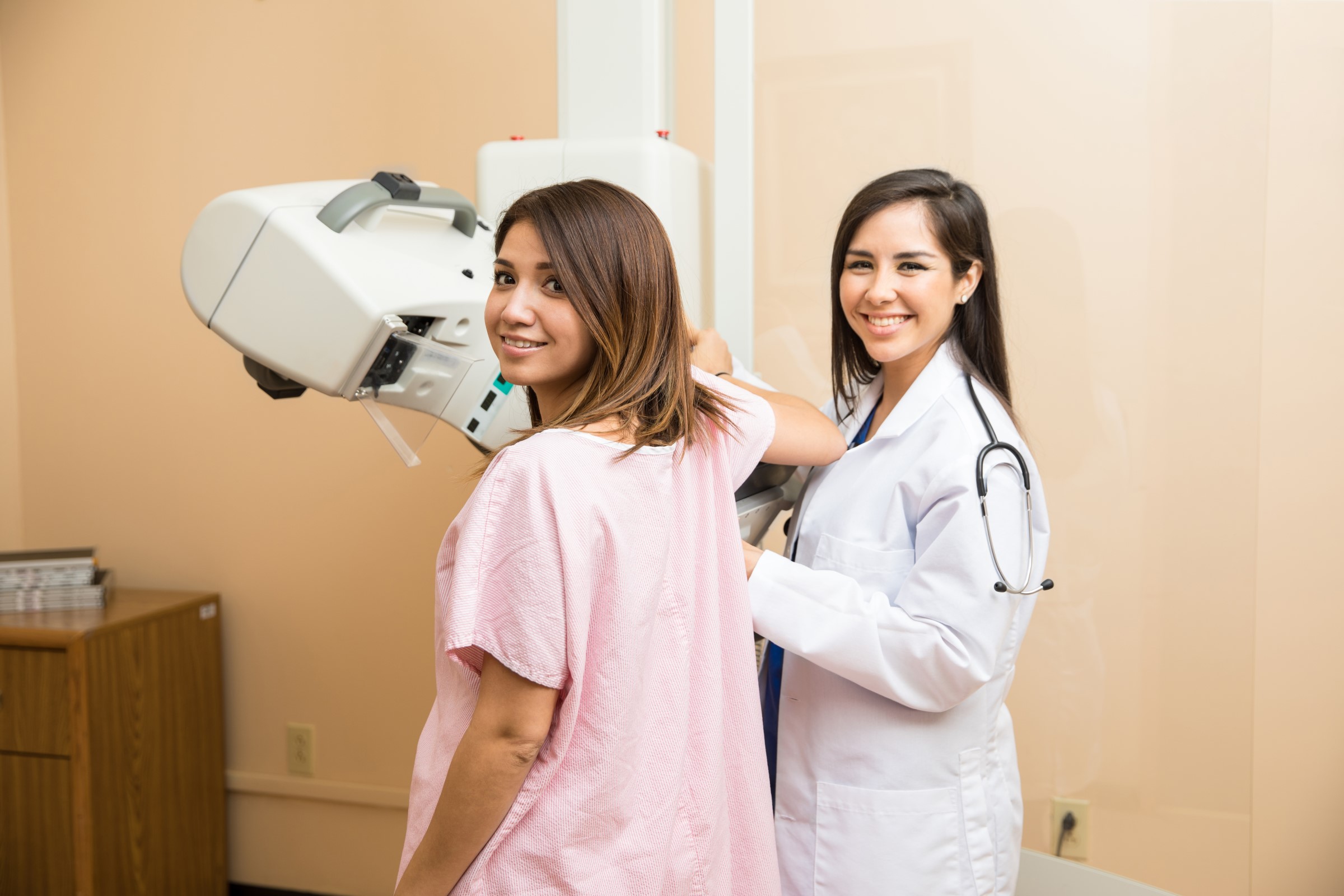When Should I Get A Mammogram?
Depending on which organization you site, you’ll find a variety of answers on the recommended age for women to get a mammogram. For years, medical experts recommended annual mammograms starting at age 40. That number, and how often women should be examined, is now becoming more fluid.
While the consensus from the majority of organization and doctors is for each woman to make a personal decision with her health care provider on when to begin and how often to schedule mammograms, the recommended age for a woman not in a high-risk category is debated.
The U.S. Preventive Services Task Force mammogram guidelines suggests women begin mammogram screening at age 45, while the American Cancer Society promote screenings at age 45. The Mayo Clinic recommends screening beginning at age 40, citing the tests’ abilities to “detect breast abnormalities early in women in their 40s.”
Despite the age disparity in recommendations from different groups, mammograms are still necessary at nearly any age if a lump in the breast is detected. Mammogram screenings do help detect breast cancer earlier, but as with the majority of medical procedures, you must let your health (and a conversation with your doctor) determine the best fit for you.
Am I at risk for breast cancer?
Building a relationship with your gynecologist Reno, NV is the best way to understand if you are at high risk for breast cancer. Your doctor will be able to monitor your health, delve into your family history, and catch warning signs early when you make time for yearly check-ups. Be sure to talk to your doctor about any of the below warning signs that may affect you.
- Family history of breast cancer
- Environment factors (working in or near high levels of radiation)
- Overweight or obese
- Post-menopausal age
- Drinking alcohol frequently
- Dense breasts (having more connective tissue than fatty tissue)
This is not an all-inclusive list, but it does point out some of the most prominent risk factors when it comes to breast cancer. When deciding on the right age to begin mammograms, consider your:
- Age
- Breast density
- History of breast biopsy
- Family history of breast cancer
- Personal health
- Doctor’s recommendations
While studies and advanced technology may eventually lead us in a more definite direction on a mammogram age, we know that early detection is key to detecting, treating, and beating breast cancer.


